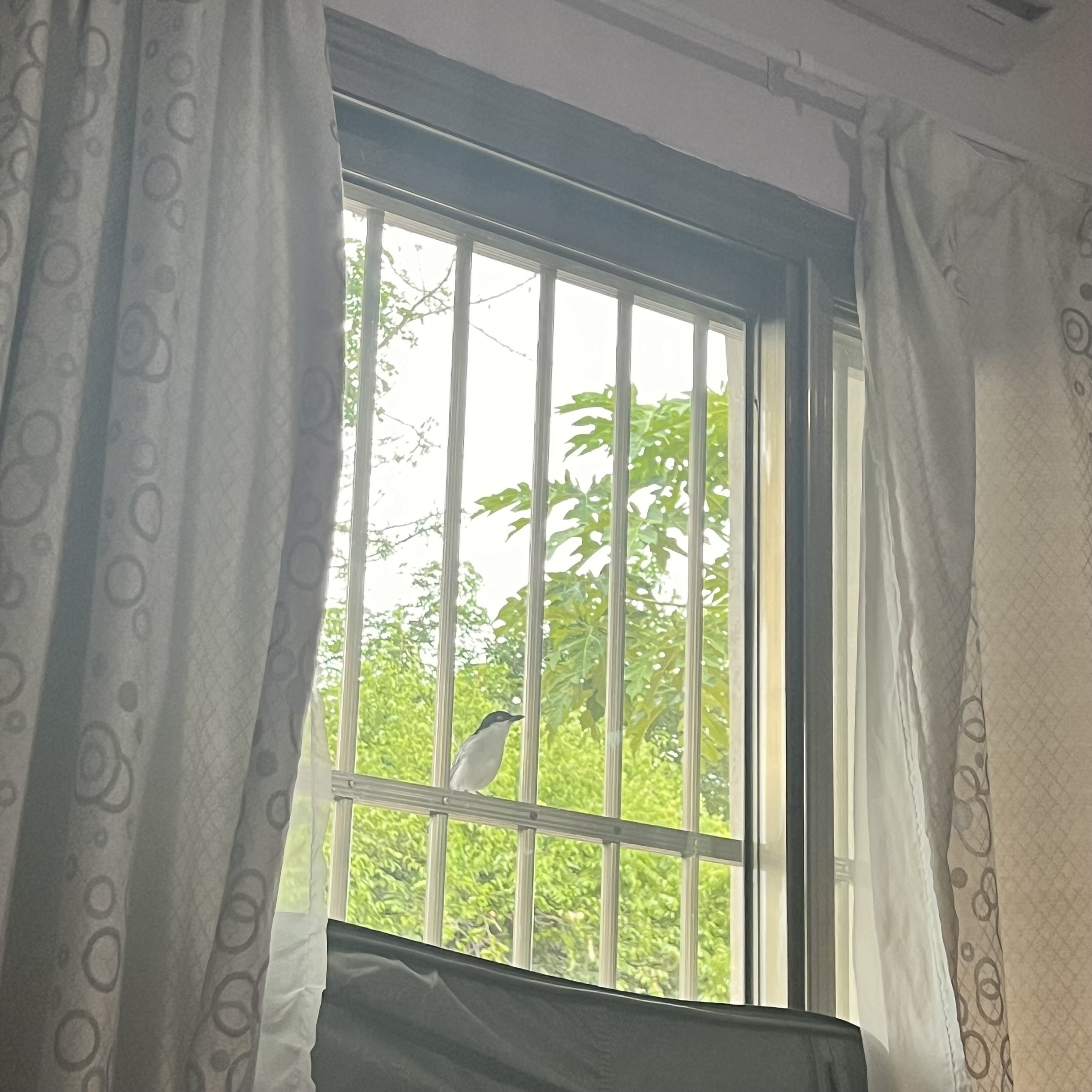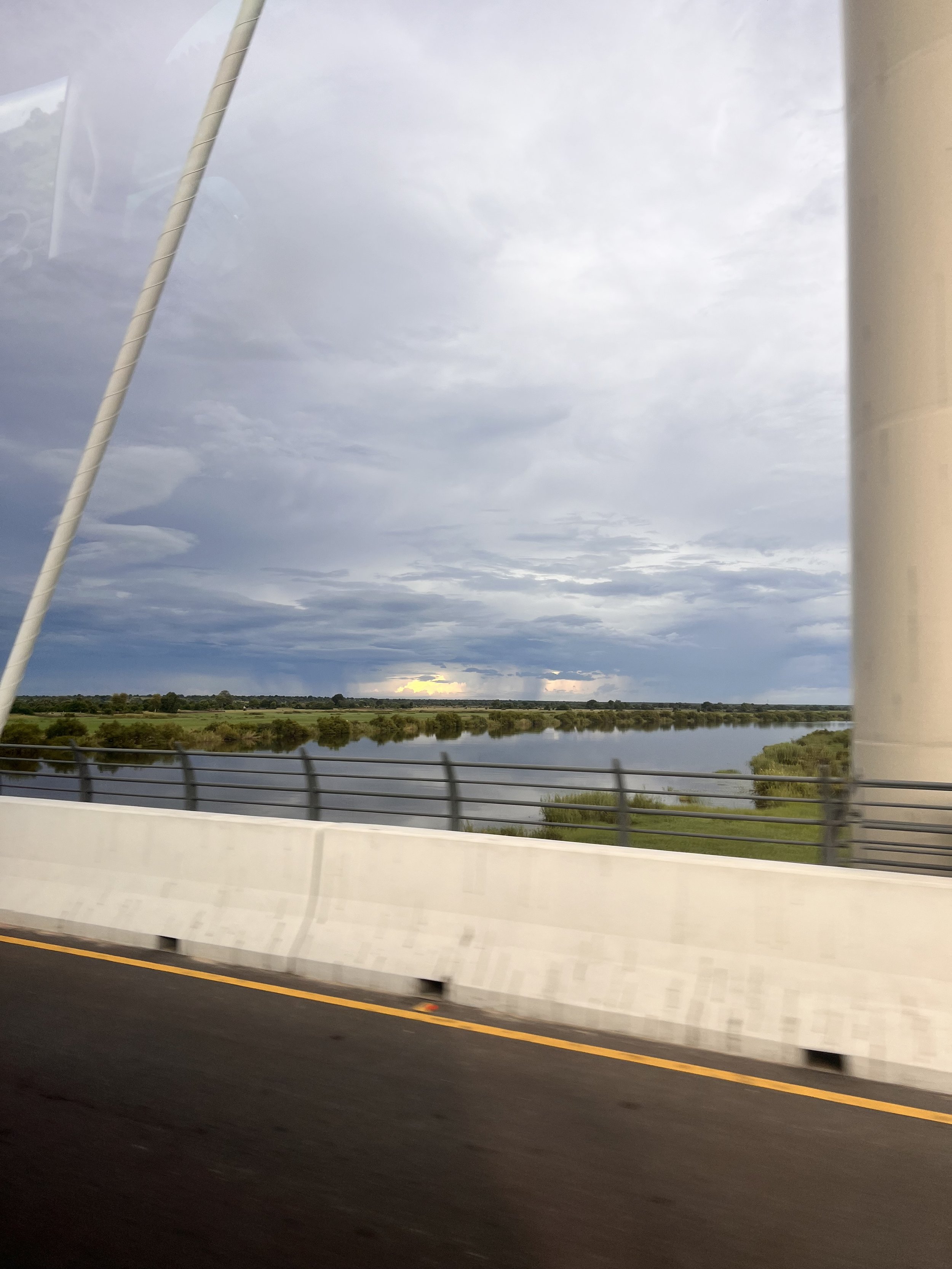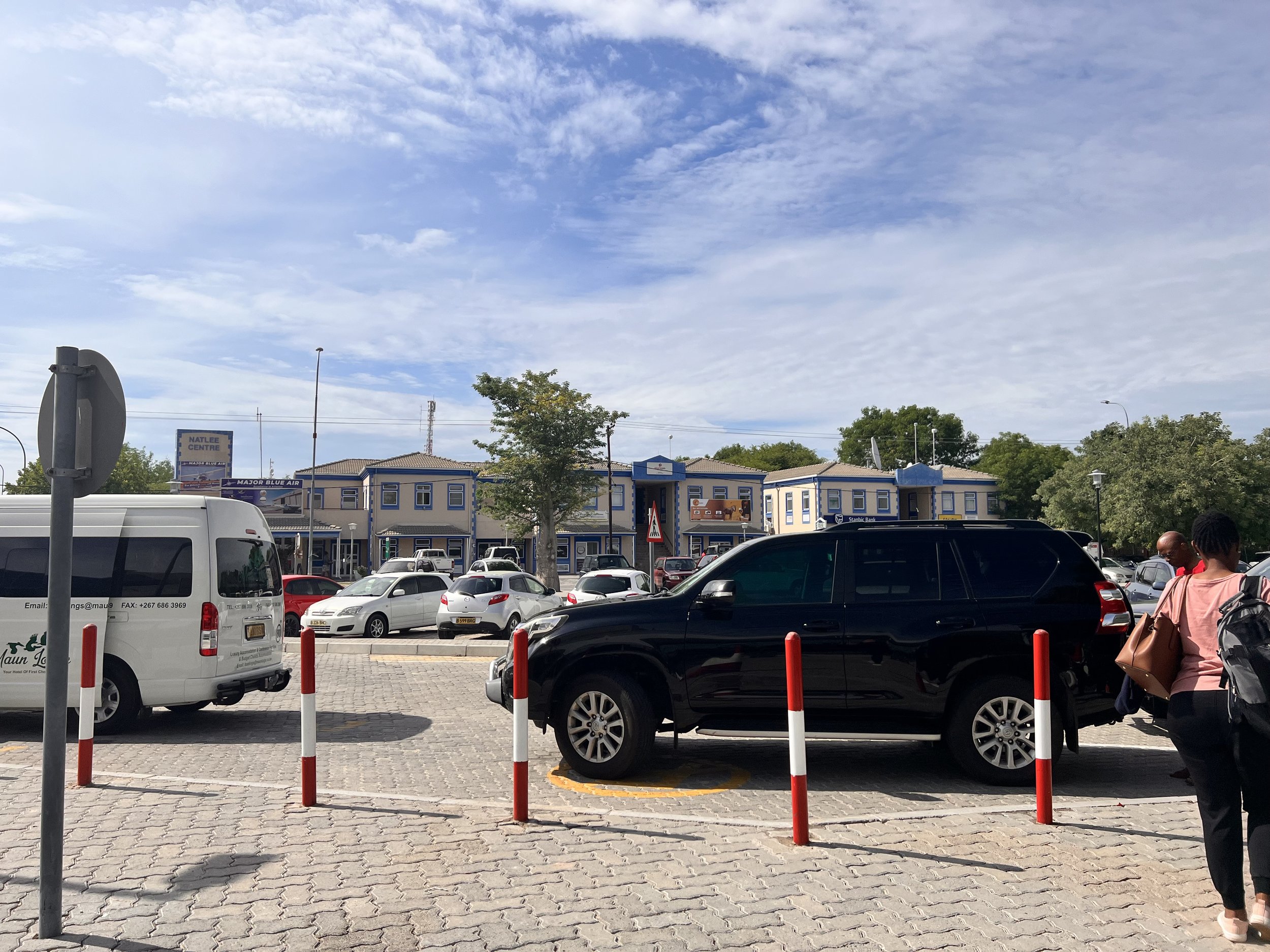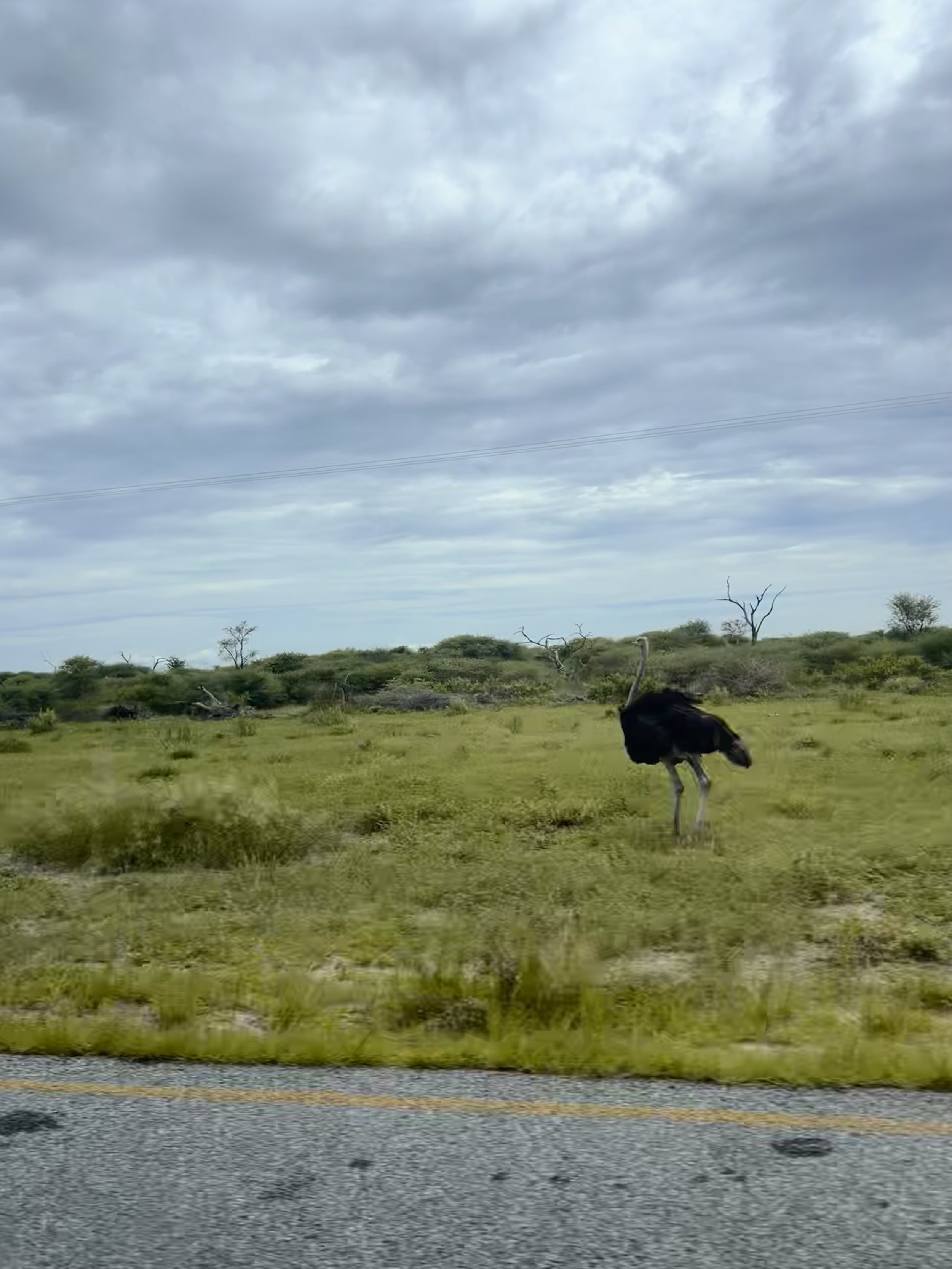Wareng, Warona?
Sounds outside the window of my guest house:
Countless birds singing in the trees
Children playing and laughing at the house next door
Torrential rain hitting the roof
The deafening boom of thunder and lightning
The singing of the guest house staff
A bird landing on my windowsill and tapping at the glass
A man talking on a megaphone
Music, usually amapiano or gospel
A donkey’s loud braying
Peace and silence are very different things. I have been toeing the line between them. When one is at peace, you are completely satisfied with who you are and your place in the world. When one is in silence, you are alone with your mind, and your strength and will are tested. The silence, while deafening, allows me to hear the quiet sounds, the whispers in the air. It is peaceful here. I could be at peace here. It may take a while, though.
——————————
Shakawe is a village. It is a tourist destination, but it is a village nonetheless. The village is situated along the Okavango River, which runs all the way down to the Okavango Delta, making it the perfect place for fishermen and safari-goers. It is about as far northwest as you can get in Botswana, being only about 15 minutes away from the northern Namibian border.
Because of its remote location, Shakawe is a five hour drive away from the closest town with an airport, Maun. The drive from Maun to Shakawe felt like an eternity, especially because I was exhausted after waking up at 5 AM to get to the airport on time. Every thirty minutes or so as we were driving, we would pass a tiny village, but mostly, it was grassland or grazeland, which Tswana people call moraka.
Even when we arrived in Shakawe, it was more rural than I expected it to be. With an area of around 10 square miles, the village is about half the size of my hometown, Princeton, New Jersey. The village does take up a lot of space, but a majority of the land is farms, stores, guest houses, or “the bush.” That is what they call the wilderness of the Okavango here. “Don’t go in the bush,” they say. “The elephants are there.” I haven’t seen any big safari animals yet, although the rainy season isn’t really the time when they come near the river. I have seen ostriches and devastatingly large spiders, however.
One of the animals that have really caught my eye here are the birds. Birding is one of the main attractions of Shakawe. Every morning, I have heard the chirps and calls of different birds, and some of them incessantly tap at my window early in the morning. While I am not an avid birdwatcher myself (although shout out to my grandmother who loves birds and taught me a couple things), I have been awestruck by the vivid colors and the diverse species of the birds here.
For me, though, the most exciting part of being in Shakawe has been the lovely people here. They welcomed me with open arms, with one of the school heads even giving me a Setswana name, Warona. The name translates to “our child,” which I hope means I’ll be well taken care of throughout my time here.
And I have been taken care of so far. The guest house I’m staying in is very nice, with kind staff, beautiful scenery, and wifi (what can I say? I need some comforts). Because of their cultural values, Batswana often want to introduce themselves and share details about themselves in a way that is very un-American. One man in a bank even talked in length with me about British colonization, money, and how he owned a construction company and was trying to expand his business into Namibia. My conversations with people do help me feel less alone, and I now have multiple people who know me and want to help me with whatever I need.
But I’ve had a lot of struggles so far. The first day was rough, looking around for hours for a place that served lunch, trying to find guest houses with no street signs or address. Luckily, I had two people from the embassy to help me navigate the first day, but after they left, I was left here on my own, having to rely on my few connections in order to get by.
Even as I’ve gradually been making more connections with people and having conversations, it has still been frustrating and even a bit scary at times. As a woman, I don’t know when to trust the men around me. People are also very curious about my race and will stare at me to ascertain my ethnicity. I have been called anything from lekgoa (white person) to coloured, usually depending on whether my curly hair is out.
As it is rainy season, there are lengths of days when there are torrential downpours and booming thunder, and it is overwhelming. Power outages can also be a bit scary, as there is no estimation when the electricity will be back or how long you’ll have to preserve your phone battery for. I’ve begun to see that it is usually only ever for a couple hours, though. And, they are very few and far between.
But despite my growing pains, I’ve survived thus far, and I am starting to get settled in. I am now renting a house in the southern part of Shakawe, so I’ve been buying furniture and things I need to live there. After beating jet lag, my sleep schedule is (kind of) normal. And I will fully start in the senior school next week, meeting the students and the teachers who I’ll be working with. Until then, though, I’m just taking it day by day and enjoying the little things, or the little sounds, that make this experience worth while.
Until next time,
Hailey (Warona) Young












